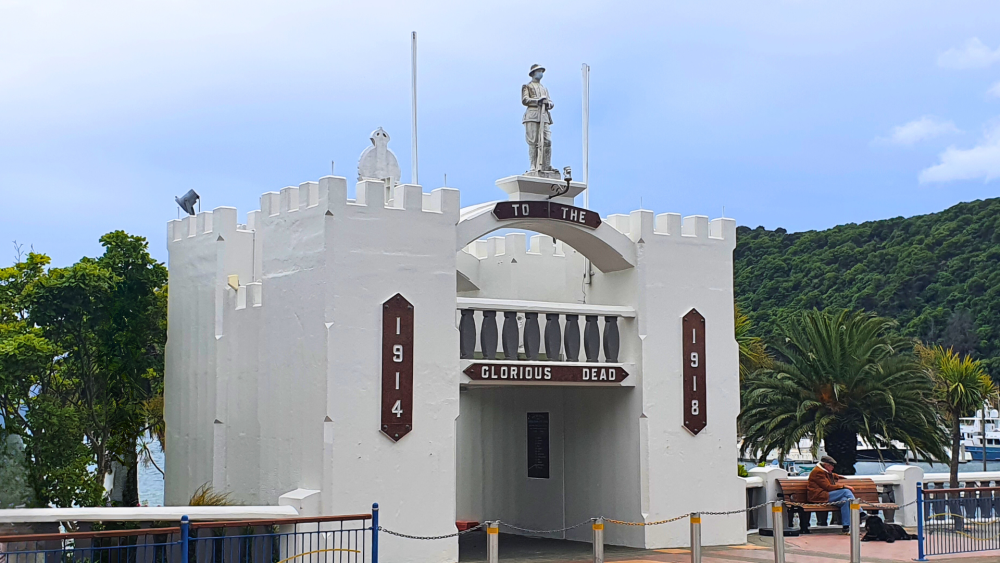“The Glorious Dead” is inscribed on many war memorial monuments all around NZ. That phrase has always jarred with me. What is glorious about being dead? Especially in some of the atrocious conditions experienced in WWI.
Laurence Binyon’s 1914 poem “The Fourth of August” included the term:
“For us the glorious dead have striven,
They battled that we might be free.”
It is a term that was used sporadically for many years but came into prominence with the opening of the Cenotaph in Whitehall, London. Lloyd George wanted the inscription. The Cenotaph (meaning “empty tomb”) was designed by Sir Edwin Lutyens. He was instructed to make it non-religious to represent the many cultures of the Empire. The Cenotaph was instantly popular, and there are similar examples in NZ.
In 1915 the British government forbad the repatriation of soldier’s bodies. This left grieving families with no graveside to mourn at. Memorials became de facto graves, with the names of the fallen listed. The idea that lives had not been lost in vain was fostered by using the phrase “the glorious dead”.
For Christians, glory is a synonym for heaven, so it could be thought of as the person ascending into heaven. Most memorial committees chose not to include symbols like the Cross, but many used the wording “To the Glory of God” and “Greater love hath no man than this, that a man lay down his life for his friends” John 15:13.
The industrial scale of death and suffering in WWI produced millions of dead and maimed. Many returned home physically damaged and psychologically traumatised. In the 1970s one of my neighbours was a WWI serviceman who had been gassed and it affected his speech for life. The “war to end all wars” did not achieve that and instead the terms for reparations laid the groundwork for WWII. It is hard not to look back at WWI as being obscene. But that does not prevent us from honouring the memory of those who were caught up in it.
ANZAC Day is our memorial day. It should be apolitical and a day to savour the peace that we currently enjoy.
With gratitude
John Subritzky

